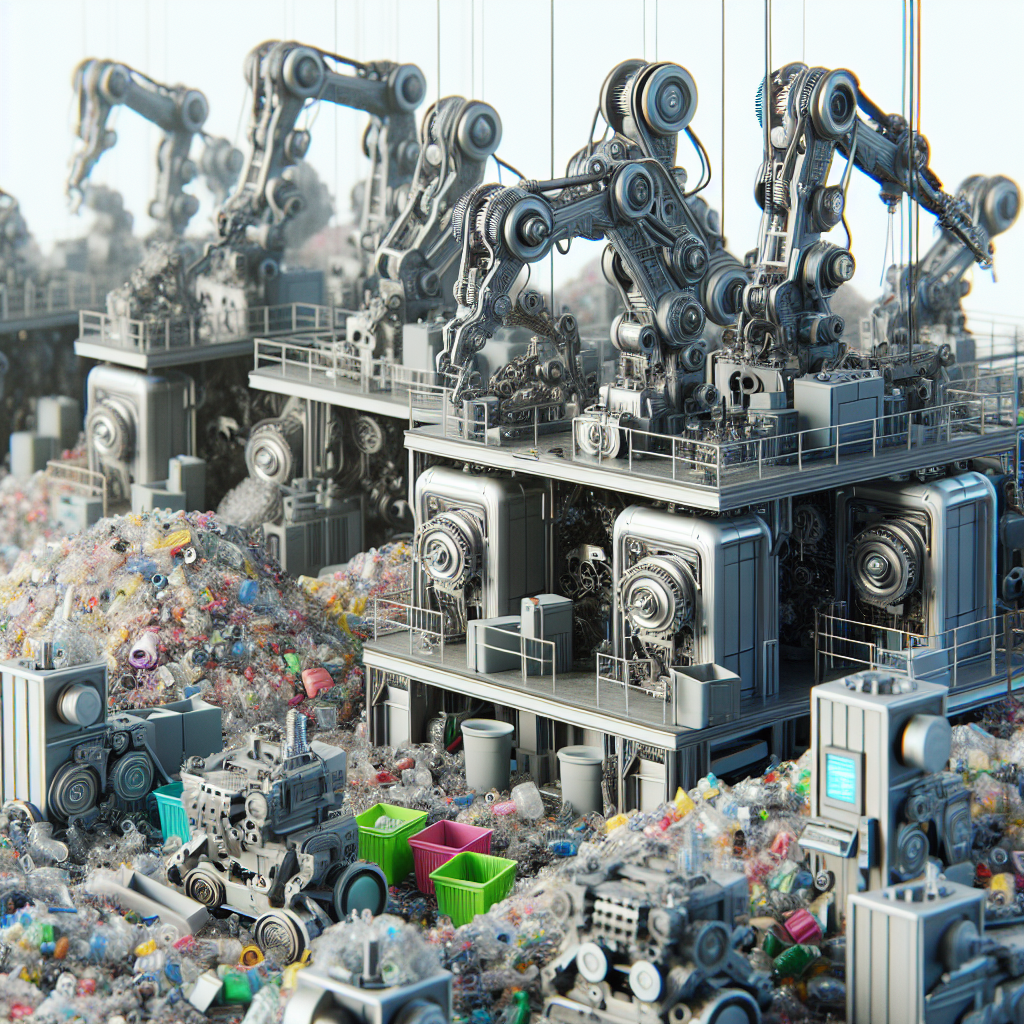September 12, 2024
Recycling Bots
Book a Demo
Introduction
Recycling bots represent a significant advancement in waste management technology. These automated systems are designed to sort and process recyclable materials more efficiently than traditional methods. As the world grapples with environmental challenges, recycling bots offer a scalable, adaptable, and effective solution to improve recycling rates and reduce landfill waste. By leveraging advanced technologies such as artificial intelligence and machine learning, recycling bots can quickly identify, categorize, and sort various types of waste, making the recycling process faster and more accurate.
Localized Solutions
Localized solutions are essential for the successful implementation of recycling bots. These systems can be customized to address specific local recycling needs and regulations. For instance, a recycling bot in a city with a high volume of plastic waste can be programmed to identify and sort various types of plastics. This customization makes recycling bots highly adaptable and efficient, ensuring that they meet the unique requirements of different regions.
Moreover, localized recycling bots can be designed to handle specific challenges faced by a community. For example, in areas where electronic waste is a significant concern, bots can be equipped with specialized sensors to identify and sort electronic components. This targeted approach not only improves the efficiency of recycling but also ensures that valuable materials are recovered and reused.
Global Networks
Recycling bots are not just local solutions; they are part of a global network aimed at optimizing recycling practices. These bots share data and insights with each other, creating a comprehensive database that can be used to improve material recovery rates worldwide. By being interconnected, recycling bots can learn from each other and continuously enhance their sorting algorithms, making the entire recycling process more efficient on a global scale.
Global networks also facilitate the standardization of recycling practices. By sharing best practices and data, recycling facilities worldwide can adopt more efficient and effective methods. This global collaboration can lead to significant improvements in recycling rates and a reduction in the environmental impact of waste. Additionally, global networks enable real-time monitoring and analysis, allowing for quick adjustments and improvements in recycling processes.
Benefits of Recycling Bots
The benefits of recycling bots are manifold. They significantly reduce the amount of waste that ends up in landfills, thus mitigating environmental pollution. Recycling bots are also more efficient and accurate than human workers, reducing the margin of error in sorting recyclable materials. Additionally, these bots can work around the clock, increasing the overall throughput of recycling facilities.
Recycling bots also contribute to economic benefits. By improving the efficiency of recycling processes, facilities can save on labor costs and increase the value of recovered materials. The precision of recycling bots ensures that high-quality materials are sorted and processed, which can be sold at a higher price in the market. Furthermore, by reducing the volume of waste sent to landfills, recycling bots help communities save on landfill costs and reduce the need for new landfill sites.
Challenges and Future Directions
Despite their numerous benefits, recycling bots face several challenges. One of the primary challenges is the high initial cost of implementation. Purchasing and installing recycling bots require significant investment, which may be a barrier for smaller recycling facilities. Additionally, recycling bots need regular maintenance and updates to stay effective, which adds to the operational costs.
Another challenge is the complexity of waste streams. Not all waste can be easily categorized and sorted by bots. For instance, mixed materials or items with food contamination pose significant sorting challenges. Future directions for recycling bots include making them more cost-effective and improving their ability to sort a wider range of materials. Research is also ongoing to make these bots more energy-efficient, further reducing their environmental impact.
Moreover, advancements in sensor technology and artificial intelligence will play a crucial role in overcoming these challenges. Developing more sophisticated sensors that can identify a broader range of materials and improving machine learning algorithms will enhance the capabilities of recycling bots. Collaborative efforts between researchers, industry stakeholders, and policymakers will be essential in driving these innovations forward.
Recycling bots are a promising technology that can revolutionize waste management. With localized solutions and global networks, these bots offer a scalable and effective way to improve recycling rates and reduce landfill waste. While there are challenges to overcome, the future of recycling bots looks bright, with ongoing research aimed at making them more efficient and cost-effective. As technology continues to advance, recycling bots will play an increasingly vital role in creating a more sustainable and environmentally friendly world.
Connect with our expert to explore the capabilities of our latest addition, AI4Mind Chatbot. It’s transforming the social media landscape, creating fresh possibilities for businesses to engage in real-time, meaningful conversations with their audience.



